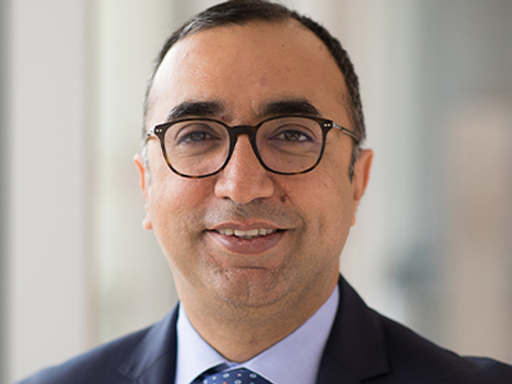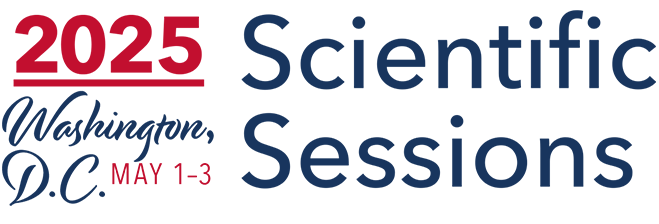Structural

Join Me in Washington, DC
The 2024 SCAI Conference is a must-attend event for cardiologists, interventional cardiologists, and allied health professionals dedicated to advancing the field of structural heart interventions.
Immerse yourself in a comprehensive program exploring the latest breakthroughs in aortic, mitral, and tricuspid valve therapies, as well as left atrial appendage occlusion (LAAO) and patent foramen ovale (PFO) procedures.
The conference will allow both early career and experienced structuralists to improve their skills and knowledge through a variety of didactic sessions, case-based learning, controversies, and live cases.
Join us at the SCAI Conference and be a part of shaping the future of structural heart care.
Azeem Latib MD, FSCAI
Structural Track Director
Overview
This program offers an in-depth exploration of the latest advancements and key techniques in structural heart disease interventions, with a focus on aortic, mitral, and tricuspid valve therapies, as well as left atrial appendage occlusion (LAAO) and patent foramen ovale (PFO) procedures.
Sessions cover both foundational and advanced topics, from TAVR fundamentals and complex tricuspid interventions to nuanced debates on ethical and economic considerations in structural heart care.
Attendees will gain practical skills, insights from real-world cases, and the latest knowledge to optimize patient outcomes in structural heart interventions.
Target Audience
Includes cardiologists, interventional cardiologists, and cardiovascular surgeons who specialize in or want to expand their expertise in structural heart disease interventions.
Cardiology fellows, nurse practitioners, physician assistants, and allied health professionals involved in structural heart procedures and patient management would also benefit.
Learning Objectives
This year's conference offers an unparalleled opportunity to:
- Enhance your expertise: Acquire practical skills and knowledge through in-depth discussions of groundbreaking techniques, complex case studies, and emerging technologies.
- Optimize patient care: Discover innovative approaches to TAVR, LAAO, and tricuspid interventions, including imaging modalities, transcatheter options, and surgical considerations.
- Engage in critical discussions: Explore ethical and economic considerations surrounding controversial topics, such as TAVR in younger patients and LAAO for stroke prevention.
After attending this program, attendees will be able to:
- Describe recent advancements in structural heart interventions, including innovations in aortic, mitral, and tricuspid valve therapies and LAAO for stroke prevention.
- Apply knowledge of TAVR techniques and considerations for complex cases, such as small annuli, bicuspid valves, and young patient management, to improve procedural outcomes.
- Assess diagnostic and therapeutic approaches for tricuspid regurgitation using imaging modalities and intervention options like T-TEER, TTVR, and surgery based on patient-specific factors.
- Evaluate transcatheter mitral interventions, understanding their indications, mechanisms, and emerging technologies to manage mitral valve disease effectively.
- Implement strategies for managing complications in heart/brain interventions, such as LAAO and PFO, by understanding risks, imaging use, and mitigation techniques to optimize patient safety.
- Engage in ethical and economic considerations surrounding structural heart care, including controversial topics like TAVR for younger patients, default LAAO for stroke prevention, and interventions in elderly patients with limited life expectancy.
This session will set the stage for the structural heart track, providing a comprehensive overview of the latest structural heart disease intervention advancements and featuring expert speakers and panelists who will discuss key developments in aortic, mitral, and tricuspid valve therapies, as well as left atrial appendage occlusion for stroke prevention. It will include insights into the most recent clinical trials, emerging technologies, and procedural innovations in the field and a peek at the other exciting structural sessions on display during the conference.
This session will be a deep dive into the fundamentals of TAVR. Covering a wide range of topics, starting with the complex hemodynamics of aortic stenosis and the challenges of TAVR in small annuli, it will also explore specific considerations for bicuspid TAVR and the lifetime management of TAVR in young patients. Attendees will also learn about the latest advancements in TAVR access techniques and device technologies and have the opportunity to ask experts questions on optimizing TAVR outcomes.
This session offers a comprehensive overview of managing tricuspid regurgitation, from diagnostic imaging to therapeutic interventions. It starts with a discussion on the anatomy and physiology of the tricuspid valve, emphasizing the clinical implications of regurgitation. Participants will learn about the imaging modalities used to assess the tricuspid valve before and during interventions, such as T-TEER. The session will also address potential complications of T-TEER and strategies for their management. Attendees will gain insights into selecting the most appropriate treatment approach for tricuspid regurgitation, whether surgery, T-TEER, or TTVR, based on individual patient factors and valve anatomy.
May 1 - 3, 2025
Washington, DC

